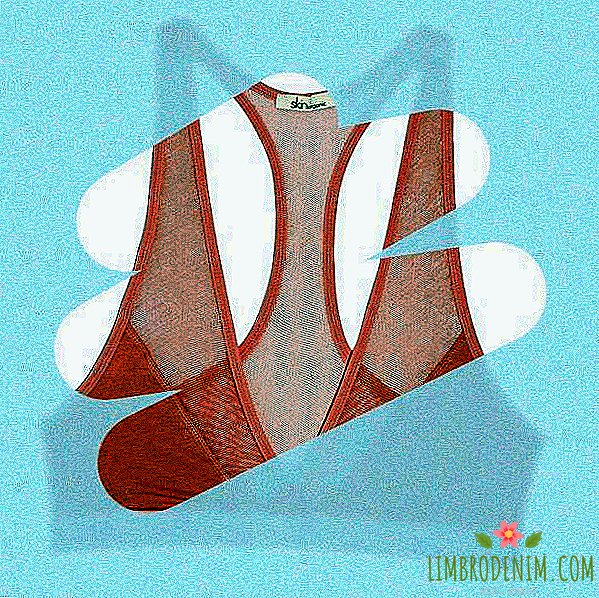Mind Games: Simple and Effective Brain Training
Text: Olga Polevikova
Age-related changes are natural to the body.. They occur not in old age, but much earlier, and one of the first to change the brain. Many of us notice that over time, the names of colleagues and urgent matters are remembered more difficult, and writing an article or report for the night becomes not so simple. It is believed that from about 24 years old the brain gradually begins to lose neuroplasticity - the ability to change the structure and functions. This happens because the number of nerve cells is constantly decreasing - and this is normal. But the main problem is in the synapses, the places of contact of the neurons, because they are responsible for the transmission of information in the brain. With age, the connection between synapses weakens, and the formation of new ones slows down.
This means that it is becoming more and more difficult to absorb new information and remember what we know. This is reflected in memory, speech, attentiveness, and spatial orientation skills. Aging of an organism is a complex process that is influenced by many factors: genetics, hormones, physical and emotional injuries, stress, nutrition, and medicines. Scientists are actively looking for ways to slow down these changes, but they have not yet succeeded in defeating brain aging. The good news is that the brain can be trained. Following our simple tips, you can develop brain neuroplasticity and do not let it "rust".
Challenge your brain
It is possible to train the brain with simple exercises anywhere and at any time of the day. Come up for yourself small exercises and tasks to make the brain think in new ways. You miss a lecture or a conference - try writing with your left hand (or your right hand if you're left-handed). Standing in line at the store, read the signs and labels back to front. Try to recognize food by taste or smell. Traveling by public transport - look at a stranger or a stranger and try to restore the portrait with your eyes closed.
If you do not remember the names well, try to repeat them at once while meeting, find some kind of association or think who this person reminds you of. We advise the most responsible to study a complex of 83 exercises for the brain called neurotic, developed by American professors Katz and Rubin. In general, they recommend to use all five senses more often, to lean on associations and to avoid routine.
read books
Reading activates the left temporal lobe of the cerebral cortex, which is responsible for the perception of the tongue, sensation and movement. According to the theory of embodied cognition, by representing a certain kind of activity, we activate the same neurons that are responsible for directly obtaining this physical experience. Empathizing with the heroes and engaging in the plot of the story, we actively gain new knowledge. It helps us to understand the feelings and motives of other people's actions, improves logical thinking, increases vocabulary and literacy of written and oral speech.
When we read, the hippocampus is activated - a very small, but very important part of the brain responsible for memory and learning. While reading, we memorize a lot of new information, and this strengthens the already existing connections between neurons and promotes the formation of new ones. Therefore, reading can serve as a preventive measure for Alzegeimer's disease and senile dementia. So, set aside at least 30 minutes a day to read books or competent longrids - and the brain will thank you.
Learn a new language
Learning foreign languages has a positive effect on the same hippocampus. When we memorize unfamiliar words and grammatical constructions, new synapses are formed and old ones become stronger. Swedish scientists observed a group of military translators who intensively studied difficult languages: Arabic, Russian, and Dari. They were compared with a group of medical students who were engaged in their usual disciplines. Three months later, an MRI scan showed that the hippocampus and some parts of the cerebral cortex of military translators increased significantly during the period of study, while the students remained unchanged.
So go ahead, it’s easy to sign up for a foreign language course, and it’s even easier to install a mobile application like Duolingo, Polyglot or Babbel. But a beautiful certificate in the frame of long-term benefits will not bring, so the main thing is practice. Watch movies and TV shows in the original language with subtitles, read the news and do not hesitate to speak with foreigners.
Play
Chess, crosswords, board and card games, computer strategies - any kind of game has a beneficial effect on the brain. Studies have shown that video games stimulate the growth of nerve cells and improve communication between different brain regions responsible for spatial orientation, strategic planning, memory, and fine motor skills. Moreover, the more gambling the player, the greater the changes seen during the MRI scan. Video games have serious potential: scientists are developing special programs that will help people with post-traumatic syndrome, schizophrenia or Alzheimer's disease to improve their condition.
Of course, in everything you need to know the measure: video games can be addictive. So alternate them with chess and board games: they improve memory, affect the speed of information processing and develop logical thinking. As in any undertaking, regularity and support of the company are important here: try to organize a monopoly or poker club with friends.
Make music
Playing a musical instrument is a real crossfit for the brain. During the class music almost all parts of the brain are involved at the same time. The work of the corpus callosum, a kind of bridge between the two hemispheres, is accelerating: information circulates faster and in different ways. Playing an instrument develops fine motor skills, improves strategic thinking and memory. Very clearly about the benefits of making music is described in this video for TED-ED: after watching you want to urgently sign up for classes in playing the guitar or cymbals.
Only music has such a complex effect on the brain - the effect of sports or drawing is more limited. All people have a musical ear - the question is how developed it is from nature. Even if you were not taken to a music school as a child, now nothing prevents you from developing your hearing and finally playing Dog Sailing or even Fuha Bach.
Get a notebook or diary
Paper notebook is useful in two cases - for planning and introspection. If you want to effectively organize your day, take a diary. Choose any planning method that is convenient for you and record future business by hand. It is proved that handwriting stimulates learning processes, develops fine motor skills, allows you to better memorize and become aware of new information. Get a notebook for sketches: they develop creativity and help to cope with emotions.
In order to understand yourself, try to keep a diary. Self-analysis will allow you to better understand your emotions, actions and perspectives. A diary technician is a lot, but it is important to remember a couple of rules: write in a calm state, be honest with yourself, and if in self-knowledge you have gone further than expected, suspend the practice and contact a psychologist.
Keep your body in shape
Trite, but true: the absence of bad habits, regular physical activity, proper rest and balanced nutrition guard the health of the brain. Lean on fish containing omega-3 fatty acids, avocados, beans and nuts, a source of vitamin E. Aerobic exercise, such as dancing, stimulates blood circulation and strengthens connections in the brain, and also improves coordination of movements.
Every evening, find at least ten minutes to disconnect from work and get the most out of your free time. Try to relieve stress by meditation: regular practice increases the hippocampus, helps control emotions, improves attention. And, of course, get enough sleep: during sleep, our brain actively digests information, learns, draws conclusions and cleans itself of biological "garbage".
Photo: podpad - stock.adobe.com, studioDG - stock.adobe.com, Sandra van der Steen - stock.adobe.com







